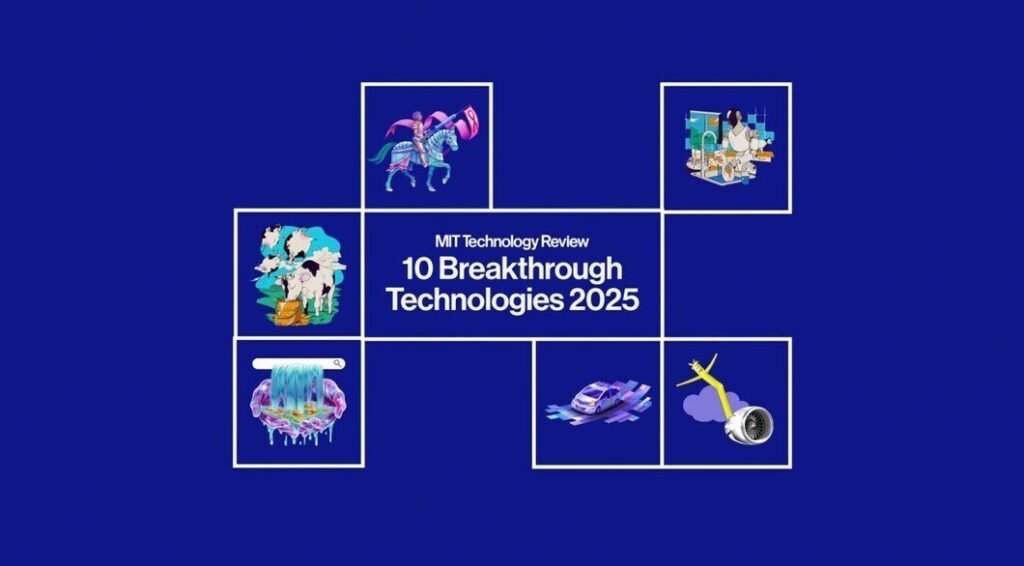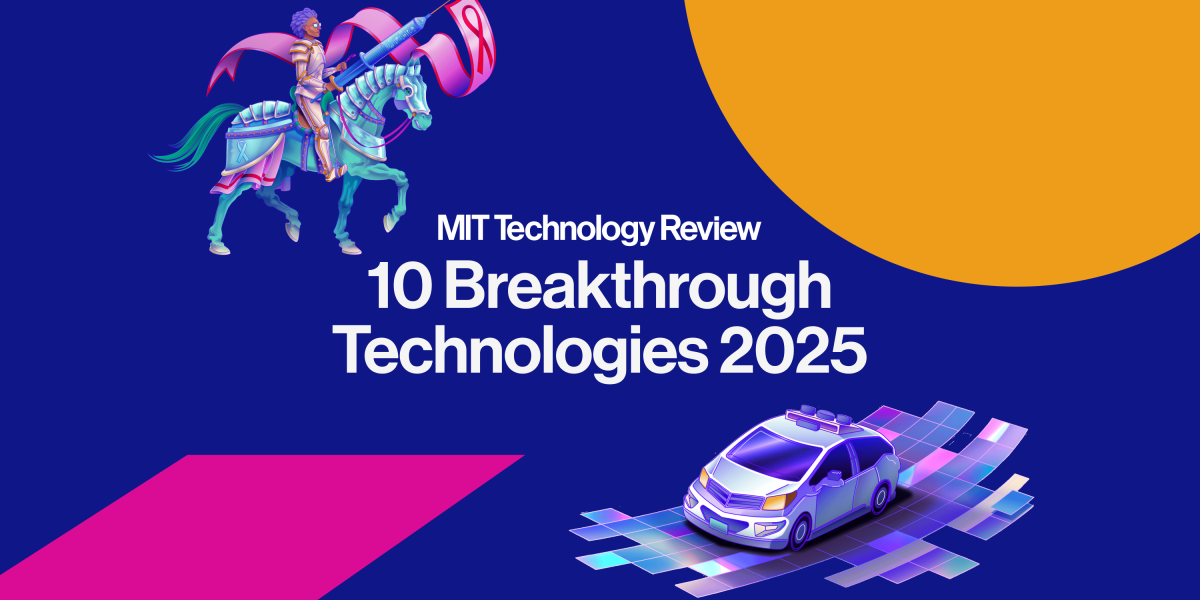As we approach 2025, the world is witnessing an unprecedented acceleration in technological innovation. From artificial intelligence to space exploration, groundbreaking breakthroughs are shaping industries, reshaping economies, and transforming how we live. In this article, we’ll explore the top 10 tech breakthroughs that are likely to emerge by 2025, highlighting their potential impact on businesses, consumers, and society.
1. Artificial Intelligence (AI) Becomes More Human-Like
The Rise of General AI
Artificial Intelligence (AI) has already made strides in automation, data analysis, and pattern recognition. However, by 2025, we are likely to see the advent of Artificial General Intelligence (AGI), a form of AI that can perform any intellectual task that a human being can.
- Improved Decision Making: AGI will not just be able to analyze data; it will make intuitive decisions, mimicking human reasoning in complex scenarios.
- Natural Interactions: Expect AI systems capable of having deeper, more meaningful conversations with humans, understanding context, emotions, and providing intelligent responses.
AI in Healthcare
AI is set to revolutionize healthcare by enhancing diagnostics, drug discovery, and personalized treatment. AI-powered algorithms will be able to detect diseases such as cancer at early stages, improving patient outcomes.
- Predictive Analytics: AI systems will analyze medical data to predict future health risks, allowing for preventive care.
- Robotics in Surgery: AI-powered surgical robots will perform more complex surgeries with greater precision.

2. Quantum Computing Breakthroughs
The Path Toward Quantum Supremacy
Quantum computing is on the cusp of becoming a game-changer in industries that rely heavily on complex computations. By 2025, quantum computers are expected to solve problems that are impossible for classical computers to tackle.
- Faster Problem Solving: Quantum computers will handle problems related to cryptography, materials science, and complex data analysis much faster than traditional computers.
- Enhanced AI Algorithms: Quantum computing will allow AI systems to process more data and create more accurate models, exponentially increasing their power.
Applications in Finance and Pharmaceuticals
Quantum computing will revolutionize industries like finance and pharmaceuticals. It will enable companies to simulate complex molecules, leading to the discovery of new drugs, and it will improve financial modeling by accurately predicting market trends.
- Financial Risk Management: Quantum computing will enable real-time, highly accurate financial risk assessments.
- Drug Discovery: Faster simulations will allow for the development of personalized medicine and the discovery of life-saving drugs.
3. 5G and Beyond: Ultra-Fast Connectivity
Full Deployment of 5G Networks
By 2025, the global rollout of 5G will be complete, bringing about significant changes in how we connect to the internet. 5G promises incredible speeds, lower latency, and greater connectivity, enabling new applications across various industries.
- Faster Internet Speeds: With speeds up to 100 times faster than current 4G networks, 5G will allow for real-time streaming, seamless virtual reality experiences, and more efficient cloud services.
- Smart Cities: 5G will support the infrastructure for smart cities, where everything from traffic management to energy consumption will be optimized through real-time data.
Beyond 5G: The Rise of 6G
As 5G becomes ubiquitous, research into 6G technology is already underway. Expected to roll out after 2025, 6G will further increase speeds, improve AI integration, and support more advanced applications, like holographic communication.
4. Autonomous Vehicles Take Over
Full Autonomy in Cars and Trucks
Self-driving cars are already on the road, but by 2025, we are likely to see fully autonomous vehicles dominate urban environments. With advancements in AI, machine learning, and sensor technology, autonomous vehicles will be safer, smarter, and more efficient.
- Improved Safety Features: Autonomous vehicles will drastically reduce traffic accidents caused by human error, making the roads much safer.
- Transportation as a Service: Ride-hailing services such as Uber and Lyft will incorporate autonomous vehicles into their fleets, reducing costs and increasing accessibility.
Autonomous Freight and Delivery
Autonomous trucks and drones will revolutionize the logistics industry. By 2025, autonomous freight vehicles will be handling long-haul transportation, while drones will make last-mile deliveries faster and more efficient.
- Faster Deliveries: With drones, packages will be delivered within hours of an order, and autonomous trucks will reduce the time needed for goods to reach their destination.
- Cost Savings: The elimination of drivers in freight logistics will significantly reduce operational costs for companies.
5. Blockchain Integration in Every Industry
Decentralized Finance (DeFi) Becomes Mainstream
Blockchain technology is no longer just about cryptocurrencies. By 2025, blockchain will have expanded into various industries, from finance to healthcare, offering greater security, transparency, and efficiency.
- Smart Contracts: Blockchain will automate and secure transactions through smart contracts, removing intermediaries in various industries, including insurance, real estate, and legal services.
- Supply Chain Transparency: Blockchain will ensure transparency across supply chains, tracking the movement of goods in real time and reducing fraud.
NFTs and Digital Ownership
Non-fungible tokens (NFTs) will further evolve, enabling digital ownership of assets, including real estate, artwork, and even intellectual property.
- Digital Art: Artists will sell digital art as NFTs, and the concept of owning digital property will become more mainstream.
- Gaming: NFTs will be integrated into video games, allowing players to own, trade, and monetize in-game assets.
6. Virtual and Augmented Reality (VR/AR) Revolutionizes Daily Life
Immersive Virtual Worlds
By 2025, VR and AR technologies will become commonplace, not only in gaming but in many areas of daily life, including education, healthcare, and entertainment.
- Virtual Classrooms: Students will experience immersive, interactive learning environments through VR, revolutionizing education.
- Telemedicine: Doctors will conduct remote consultations with patients using AR and VR, providing more personalized and accurate care.
Augmented Reality in Retail and Shopping
AR technology will completely transform the way we shop. Customers will use their smartphones or AR glasses to see how products will look in their homes before purchasing, creating an enhanced shopping experience.
- Virtual Try-Ons: AR will allow consumers to try on clothes, makeup, or accessories virtually, reducing the need for in-store shopping.
- Interactive Retail: In-store experiences will include AR displays, offering personalized recommendations and promotions.
7. Gene Editing and Personalized Medicine
CRISPR Technology Advances
In the field of biotechnology, CRISPR-Cas9 gene-editing technology is poised for a breakthrough. By 2025, CRISPR will enable more precise genetic modifications, allowing scientists to treat genetic disorders and even prevent diseases before birth.
- Personalized Treatments: CRISPR will be used to develop treatments tailored to an individual’s genetic makeup, improving the efficacy of therapies.
- Gene Therapy for Rare Diseases: Treatments for rare genetic disorders like cystic fibrosis or muscular dystrophy will become more widely available.
Preventive Healthcare
Gene editing will open the door to preventive healthcare, where genetic predispositions to conditions like heart disease or cancer can be identified and mitigated before symptoms develop.
- Customized Vaccines: We will see the development of vaccines tailored to individual genetic profiles.
- Longevity and Aging: Scientists will use gene editing to slow down the aging process, offering more personalized and effective anti-aging treatments.
8. Space Exploration and Commercial Space Travel
Space Tourism Takes Off
By 2025, space tourism will become more accessible, with companies like SpaceX and Blue Origin opening up space travel to the public. Suborbital flights will become available to civilians, allowing people to experience space firsthand.
- Affordable Space Flights: The cost of space travel will decrease, making it possible for more people to afford a trip into orbit.
- Space Hotels: Companies are already exploring the feasibility of building hotels in space, creating a new tourism industry in the cosmos.
Colonization of Mars
Human missions to Mars are expected to progress significantly by 2025. Space agencies and private companies are planning to send manned missions to Mars in the coming years, with the goal of establishing a permanent human presence on the Red Planet.
- Space Exploration Infrastructure: Advanced robotics and AI will assist in the development of infrastructure on Mars, including habitats, power generation, and transportation systems.
- Space Mining: Mining asteroids for valuable minerals may become a reality by 2025, providing resources for both Earth and future Mars colonies.
9. Smart Cities Powered by IoT
Intelligent Urban Planning
By 2025, many cities will become “smart cities” powered by the Internet of Things (IoT). These cities will be equipped with sensors, data analytics, and AI to optimize traffic, waste management, and energy use.
- Real-Time Data: City officials will use real-time data to manage urban resources efficiently, reduce pollution, and improve the quality of life for citizens.
- Smart Infrastructure: Buildings, roads, and utilities will be equipped with sensors that can automatically adjust to environmental changes and operational needs.
Sustainable Energy Solutions
Smart cities will focus on sustainable energy solutions, using renewable sources such as solar, wind, and hydro to power urban centers.
- Smart Grids: Cities will implement smart grids that can better manage electricity demand and integrate renewable energy sources.
- Carbon Neutral Cities: By leveraging renewable energy, electric transportation, and waste reduction, cities will work toward carbon neutrality by 2025.
10. Exponential Advances in Robotics
Robot Workforce
By 2025, robotics will play a crucial role in industries ranging from manufacturing to healthcare. Robots will not only assist in manufacturing but will also become an integral part of logistics, customer service, and even healthcare.
- Robotic Surgery: Surgical robots will become more advanced, performing minimally invasive surgeries with greater precision.
- Assistive Robots: Robots will assist the elderly and disabled in daily tasks, from providing companionship to helping with mobility.
Collaborative Robots (Cobots)
Cobots will work alongside humans in various industries, particularly in warehouses, factories, and retail environments. These robots will be designed to cooperate with humans, enhancing productivity and safety.
- Automated Factories: Factories will be fully automated, with robots handling tasks such as assembly, inspection, and packaging.
Conclusion
The technology breakthroughs expected by 2025 will redefine every aspect of our lives. From healthcare and space travel to AI, blockchain, and robotics, the next few years will usher in an era of innovation that will shape the future of society and the global economy. While these advancements will present challenges, they will also offer unprecedented opportunities for growth, collaboration, and exploration. Embrace the future – it’s coming faster than ever.
